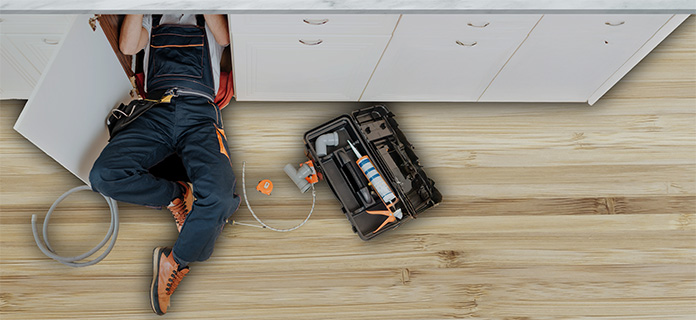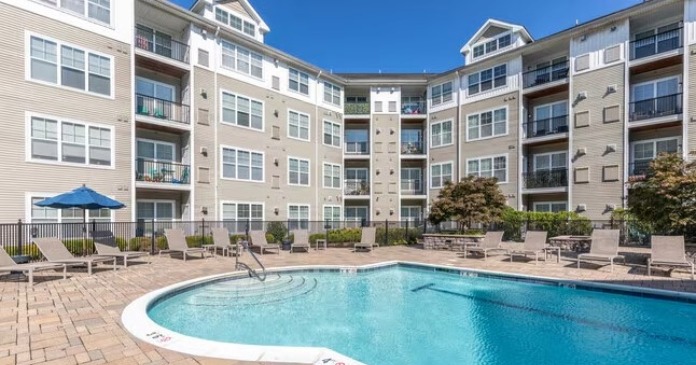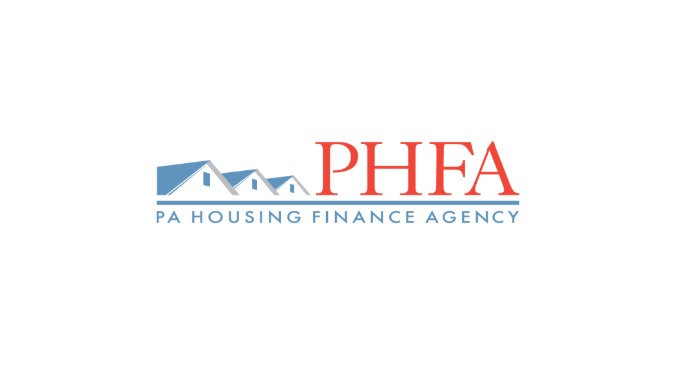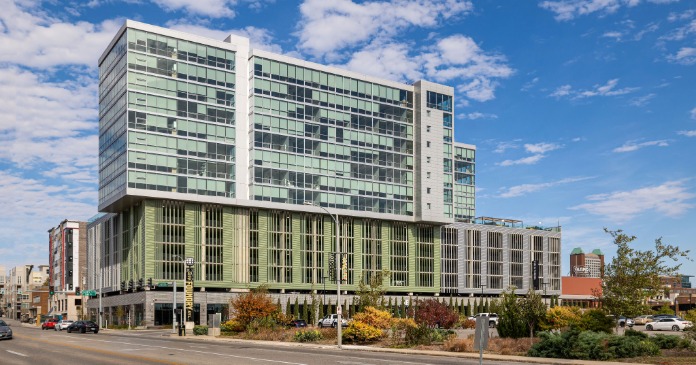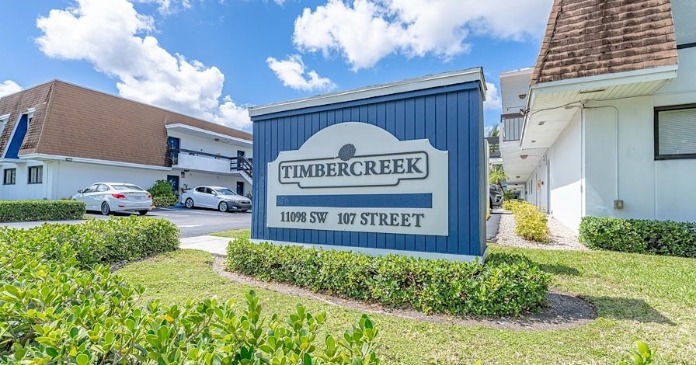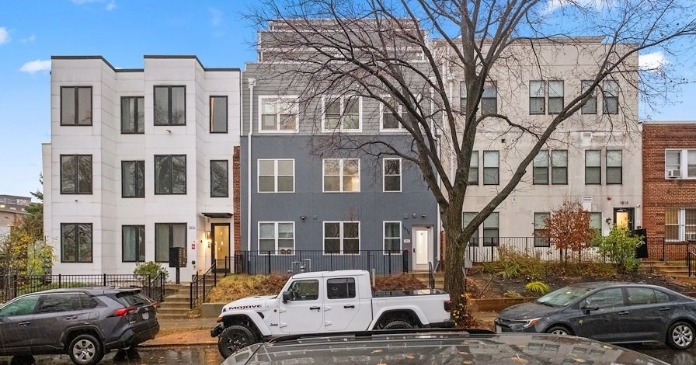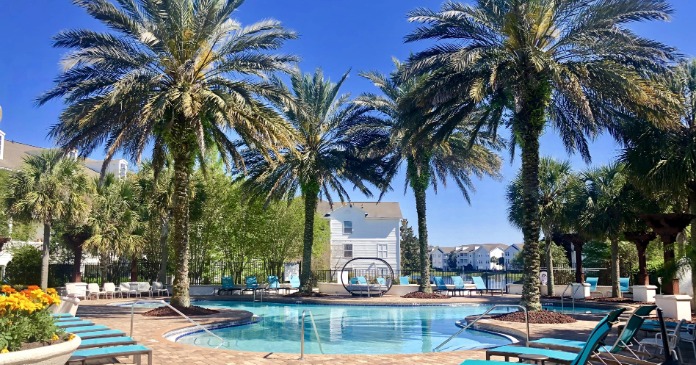Wouldn’t it be great if your apartment community felt more like a hotel stay without residents giving up the comfort and stability of home? A new mindset is emerging in multifamily, and it looks a lot like hotel living. Just as hotel guests are looking for personalized, immersive stays, long-term residents are beginning to expect a similar level of service and convenience.
In response, multifamily operators are increasingly integrating hospitality-style amenities and services into their communities, blurring the lines between residential living and the hotel experience.
The “hotelization” of the multifamily sector is a growing trend we’re seeing gather increasing momentum. It reflects a shift toward hospitality-led service models, where seamless technology and curated resident experiences are seen not as luxuries but as competitive necessities. For multifamily stakeholders, from operators to investors, this hotelization can present both a challenge and an opportunity.
A hospitality mindset
Hotelization doesn’t mean building spas and rooftop bars at every property. At its core, it’s about rethinking how service is delivered and experienced in residential settings. Today’s renters, especially the younger demographic, aren’t just looking for a place to live; they want a space that supports their lifestyle.
More multifamily operators are adopting hospitality-style offerings such as concierge-inspired support, flexible lease options, community programming, and even short-term rentals for business travelers and remote workers. Some are going further, experimenting with in-unit housekeeping and wellness services, like cleaning and servicing apartments the moment a resident heads to work, or offering dog walking and daycare options when residents will be away from home.
These additions aren’t just about adding desirable extras. They are beginning to reflect a new baseline expectation for what modern living should feel like.
The integration of hospitality principles into day-to-day multifamily operations is driven by technology and it’s this technology that makes scaling these experiences possible.
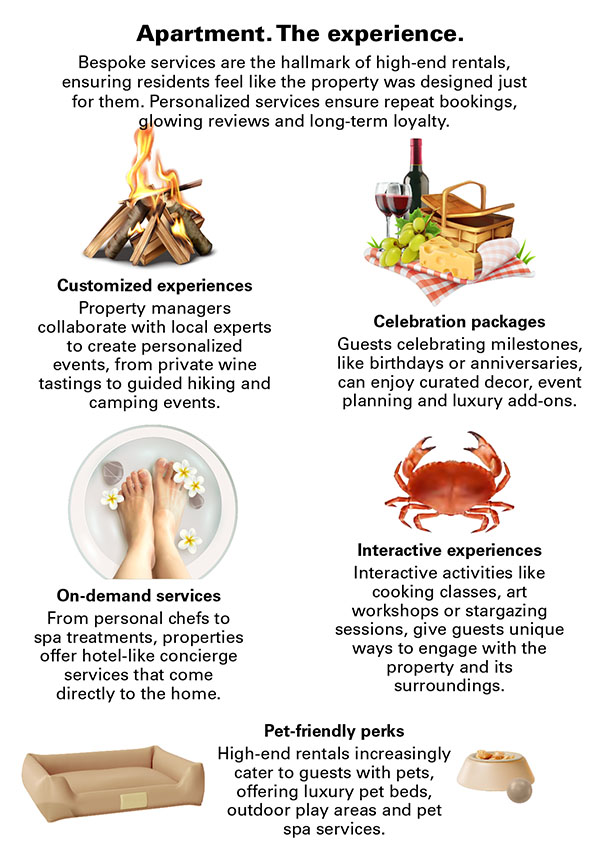 The role of smart tech in hotelization
The role of smart tech in hotelization
The success of hotelization in multifamily hinges on smart, scalable infrastructure and tech that enhances the resident experience while also improving operational efficiency.
Operators are now deploying smart access control systems that allow for frictionless movement through shared spaces and keyless entry into units. This not only improves convenience for residents but also streamlines vendor access and short-term guest coordination.
Automation like smart thermostats, voice-activated lighting, and connected appliances are now more common. They help reduce energy consumption, appeal to environmentally conscious renters, and offer residents a level of personalization and comfort once only found in hotels.
Meanwhile, resident-facing mobile apps centralize everything from maintenance requests to amenity bookings. These platforms reduce administrative overheads while giving residents a sense of autonomy and control.
Smart security solutions are another important part of the modern multifamily tech stack. Video monitoring and smart surveillance tools help multifamily property managers deliver peace of mind in a non-invasive, tech-forward way.
But this evolution is about more than just technology. It also reflects a shift in priorities. Multifamily operators are no longer simply managing and operating buildings. They’re now also curating experiences. Delivering those experiences consistently and cost-effectively requires the right combination of technology and thoughtfully designed amenities.
Where hospitality and multifamily living converge
Hotelization reflects broader, wider societal changes. Remote work, economic uncertainty, and generational preferences are all shaping the future of housing. In response, we’re noticing a rise in furnished short-term leases, hybrid hospitality-residential models, and properties designed to serve both long-term residents and mobile guests.
And this is just the beginning. This convergence of multifamily and hospitality will likely deepen in the years ahead. For forward-thinking operators, this opens the door to new revenue streams and demographic reach. But it also requires strategic planning, particularly when it comes to technology investment and service design.
It’s clear that a tech-first approach will be the backbone of this convergence. Properties that prioritize automation, data insights, and flexible infrastructure will be best positioned to efficiently evolve as market needs change.
What operators can do now
For those looking to capitalize on this shift, a full-scale rebrand or a high level of investment isn’t necessary. The first step is simpler. Operators just need to understand their residents.
Engage with your community to identify what types of services and conveniences they truly value. From there, assess your current systems—can they support more flexible leasing? Do they allow for streamlined access and automation? Are your staff equipped to take a hospitality-style approach to resident engagement?
Crucially, this isn’t just about layering on technology, it’s about fostering and nurturing a culture shift within property management teams. Empowering staff to think like hospitality professionals means reimagining resident touch points and service delivery through a more experience-centric lens.
Technology is only effective when it complements this mindset. When it does, the results are tangible: improved retention, higher resident satisfaction, and more efficient operations.
Embracing hotelization in multifamily
The hotelization of multifamily is less about copying hotels and more about adopting the best of what they offer—ease, comfort, and flexibility—and applying those principles thoughtfully within a residential context.
Multifamily communities that embrace this shift will not only meet modern expectations but set a new standard for what rental living can be. As the industry evolves, the most successful operators will be those who bring a sense of hospitality to the way they deliver and manage homes.






